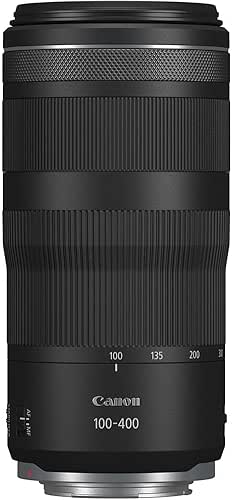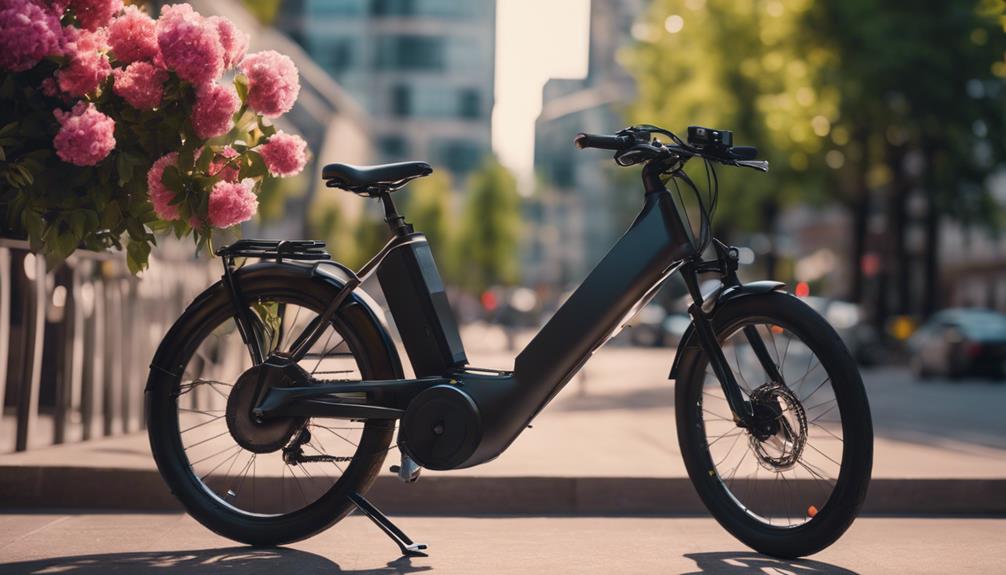If you’re looking to capture stunning lifestyle shots in 2025, I recommend exploring versatile lenses like the Canon RF 50mm f/1.8 STM for beautiful portraits and bokeh, along with wide-angle options like the EF-S 24mm f/2.8 for immersive scenes. Zooms like the RF 24-70mm give great flexibility, while macro lenses add creative angles. If you want an in-depth list and tips, you’ll find plenty more to contemplate further on.
Key Takeaways
- Prioritize lenses with wide apertures (f/1.8 or faster) for beautiful background blur and low-light performance.
- Consider versatile zooms like 24-70mm or 24-105mm for adaptable storytelling and candid shots.
- Include compact prime options such as RF50mm or EF-M 22mm for portability and daily use.
- Look for lenses with optical stabilization and fast autofocus to capture spontaneous moments sharply.
- Select lenses with minimal distortion and good color rendition to enhance overall image quality in lifestyle settings.
Canon EF 50mm f/1.8 STM Lens
If you’re looking for an affordable yet versatile lens that delivers stunning image quality, the Canon EF 50mm f/1.8 STM is an excellent choice for lifestyle photographers. Its compact, lightweight design makes it easy to carry around, while the bright f/1.8 aperture guarantees sharp images in low light and beautiful background blur. The lens’s quick, near-silent autofocus is perfect for capturing fleeting moments or smooth video footage. Whether shooting portraits, street scenes, or nighttime shots, this lens offers a natural perspective that closely mimics the human eye. Plus, its durability and affordability make it a favorite for both beginners and seasoned pros.
Best For: amateur and lifestyle photographers seeking an affordable, versatile lens with excellent low-light performance and natural perspective.
Pros:
- Compact, lightweight design makes it highly portable and easy to carry
- Bright f/1.8 aperture provides excellent low-light capability and beautiful background blur
- Near-silent autofocus ideal for both stills and high-quality video recording
Cons:
- Fixed focal length limits versatility compared to zoom lenses
- Autofocus may be noisier on some older or less advanced camera models
- No image stabilization feature, which can affect handheld shooting in certain conditions
Canon RF100-400mm F5.6-8 is USM Black
The Canon RF100-400mm F5.6-8 IS USM Black stands out as an ideal choice for outdoor, wildlife, and sports photographers seeking versatile long-range capabilities. Its compact, lightweight design makes it easy to carry on extended shoots, while the 100-400mm zoom range provides flexibility for capturing distant subjects. The fast Nano USM autofocus ensures quick, quiet focusing, and the Optical Image Stabilizer offers up to 6 stops of shake correction when paired with compatible EOS R cameras. Accepting RF teleconverters, it extends reach even further. Overall, it’s a high-quality, portable lens perfect for those wanting sharp images in dynamic outdoor environments.
Best For: outdoor, wildlife, and sports photographers seeking a versatile, lightweight telephoto zoom lens with fast autofocus and excellent image stabilization.
Pros:
- Compact and lightweight design ideal for extended outdoor shoots
- Fast, quiet Nano USM autofocus for capturing fast-moving subjects
- Effective optical stabilization up to 6 stops when paired with compatible EOS R cameras
Cons:
- Lacks weather sealing, which may limit use in harsh conditions
- Aperture range of f/5.6-8 may require good lighting for optimal results
- Zoom ring operates in a reverse direction, which might take some adjustment
Canon RF50mm F1.8 STM Lens for EOS R Cameras
A standout choice for budget-conscious photographers seeking exceptional image quality, the Canon RF50mm F1.8 STM Lens is a compact and versatile prime designed specifically for EOS R series mirrorless cameras. Its full-frame design delivers sharp, vibrant images with a wide F/1.8 aperture, perfect for low-light situations and creating beautiful background blur. The lens features optical elements like a PMo aspherical lens to reduce aberrations and coatings that prevent ghosting. Its quiet STM autofocus makes it great for both photos and videos. Lightweight and easy to carry, it’s an ideal “nifty fifty” for everyday shooting, offering excellent performance at an affordable price.
Best For: budget-conscious photographers, beginners, and enthusiasts seeking high-quality images with a compact, versatile lens for EOS R mirrorless cameras.
Pros:
- Excellent low-light performance with a bright F/1.8 aperture
- Compact, lightweight design ideal for travel and everyday use
- Smooth, quiet autofocus suitable for both stills and videos
Cons:
- Autofocus can be slow or noisy in certain video modes
- Fixed focal length limits framing options compared to zoom lenses
- Some users find the autofocus slightly finicky in low-light conditions
Canon EF-S 24mm f/2.8 STM Lens
Photographers seeking a compact and versatile wide-angle lens will find the Canon EF-S 24mm f/2.8 STM to be an excellent choice, especially for capturing lifestyle moments on Canon APS-C cameras. Its 24mm focal length offers a natural perspective, perfect for candid shots and environmental portraits. The f/2.8 aperture provides good low-light performance and attractive background blur with its 7-blade circular aperture. At just about 0.16 meters focusing distance, it allows for close-up shots with sharp detail. As the slimmest and lightest lens in the EF-S series, it’s ideal for everyday carry and unobtrusive shooting.
Best For: photographers using Canon APS-C cameras who want a compact, versatile wide-angle lens for everyday shooting, landscapes, and environmental portraits.
Pros:
- Compact and lightweight design, making it ideal for everyday carry and unobtrusive shooting.
- Wide-angle 24mm focal length offers natural perspective suitable for various photography styles.
- Fast f/2.8 aperture enhances low-light performance and creates attractive background blur.
Cons:
- Limited to APS-C cameras, so not compatible with full-frame Canon models.
- Fixed focal length may require lens swapping for different compositions.
- Maximum magnification of x0.27 may not be ideal for close-up macro photography.
Canon EF 75-300mm f/4-5.6 III Telephoto Zoom Lens Black
If you’re starting out or on a budget, the Canon EF 75-300mm f/4-5.6 III Telephoto Zoom Lens is an excellent choice for capturing distant subjects without breaking the bank. It’s lightweight and versatile, with a focal length range from 75 to 300mm, perfect for wildlife, portraits, or everyday shots. While it’s not the fastest lens—lacking stabilization and with slow autofocus—many beginners find it offers surprisingly good image quality for its price. Its compact size makes it easy to carry around, and it’s compatible with various Canon cameras, making it a solid entry-level option for those exploring telephoto photography.
Best For: beginners and casual photographers seeking an affordable, lightweight telephoto lens for wildlife, portraits, and everyday photography.
Pros:
- Affordable price point, ideal for those new to telephoto photography
- Compact and lightweight, easy to carry and handle
- Versatile focal length range (75-300mm) suitable for various subjects
Cons:
- Slow autofocus, especially in low-light conditions
- No image stabilization to assist with steady shots
- Limited low-light performance due to narrow maximum aperture
Canon EOS Rebel T7 DSLR Camera 2 Lens Kit
The Canon EOS Rebel T7 DSLR Camera 2 Lens Kit stands out as an ideal choice for beginners and hobbyists seeking high-quality images without complexity. With a 24.1 MP APS-C sensor, it delivers vibrant, detailed photos in various lighting conditions. The kit includes an 18-55mm lens for versatility and a 75-300mm lens for added zoom. Its user-friendly interface, built-in Wi-Fi, and scene auto mode make shooting straightforward. While lacking 4K video and touchscreen, it offers reliable performance for portraits, street scenes, and nature shots. Compact and durable, this kit is perfect for those shifting from smartphones or compact cameras who want a dependable DSLR experience.
Best For: beginners and hobbyists seeking an easy-to-use DSLR with high-quality image capabilities and versatile lens options.
Pros:
- User-friendly interface with built-in guides and scene auto mode for easy shooting
- Includes two versatile lenses (18-55mm and 75-300mm) suitable for various photography styles
- Built-in Wi-Fi and NFC for quick sharing and social media posting
Cons:
- No 4K video recording, limiting high-resolution video options
- Lacks a touchscreen and articulating LCD, which can reduce flexibility in composing shots
- Autofocus in Live View mode is slower compared to other systems
EF 85mm f1.8 Portrait Lens for Canon DSLR Cameras
The EF 85mm f1.8 portrait lens stands out as a top choice for those seeking stunning portrait images on Canon DSLR cameras, especially since it offers a classic focal length paired with a wide f1.8 aperture. Its optical design includes 6 rounded blades, a hybrid aspherical element, and ultra multi-coating, which deliver sharp images, beautiful background blur, and reduced glare. Although it’s fully manual, it offers creative control and a lightweight, durable build. Perfect for portraiture, it’s compatible with a wide range of Canon DSLR models, making it a versatile, affordable option for capturing stunning lifestyle moments with clarity and artistic flair.
Best For: photographers seeking a manual, affordable, and versatile portrait lens with artistic control on Canon DSLR cameras.
Pros:
- Excellent image clarity with sharpness and beautiful background bokeh
- Lightweight and durable metal construction for easy handling and longevity
- Creative control through full manual focus and aperture adjustment
Cons:
- Fully manual focus may be challenging for beginners or fast-paced shooting
- Mechanical issues like loose screws or light leaks reported by some users
- Limited performance at infinity focus, especially in astrophotography or distant subjects
Canon EF-S 10-22mm f/3.5-4.5 USM SLR Lens for EOS Digital SLRs
For photographers seeking ultra-wide perspectives on APS-C cameras, the Canon EF-S 10-22mm f/3.5-4.5 USM lens offers exceptional versatility. Designed specifically for EOS digital SLRs with a 1.6x crop factor, it provides a 16-35mm equivalent zoom range perfect for landscapes, architecture, and tight indoor shots. Its sharp optics, minimal distortion, and good contrast make images stand out. The fast, silent USM autofocus and lightweight build enhance usability, especially for travel and outdoor shooting. Although it lacks a hood, pairing it with a UV filter protects the front element. Overall, it’s a reliable, high-quality lens for capturing expansive scenes with clarity.
Best For: photographers seeking an ultra-wide zoom lens for landscapes, architecture, and indoor shots on APS-C DSLR cameras.
Pros:
- Exceptional optical quality with sharp images and minimal distortion.
- Fast, silent USM autofocus ideal for still photography.
- Lightweight and durable design, perfect for travel and outdoor use.
Cons:
- No included lens hood, requiring additional purchase for glare protection.
- Slight softness at edges when wide open, improving when stopped down.
- Autofocus may produce noise and jerky focus during video recording, less suitable for videographers.
Canon EF 100mm f/2.8L IS USM Macro Lens for Canon DSLRs
If you’re looking for a versatile macro lens that also works beautifully for portraits and close-up shots, the Canon EF 100mm f/2.8L IS USM Macro Lens is an excellent choice. Its 100mm focal length and high-quality optics deliver sharp images and smooth bokeh, perfect for detailed macro work or stunning portraits. With Canon’s Hybrid IS, it effectively stabilizes handheld shots, even at close distances. The lens features full-time manual focus, a fast USM autofocus motor, and a close focusing distance of just 0.99 feet. Its durable L-series build, weather sealing, and elegant matte black finish make it a reliable, multi-purpose lens for any Canon DSLR shooter.
Best For: photographers seeking a versatile macro lens that excels in detailed close-ups, portraits, and general photography with high image quality and stabilization.
Pros:
- Excellent image stabilization with Hybrid IS for sharp handheld macro shots
- Sharp optics and smooth, creamy bokeh suitable for macro and portrait photography
- Robust build quality, weather sealing, and durable L-series design
Cons:
- Heavier weight (approximately 1.38 pounds), which may be less comfortable for extended handheld shooting
- Lacks the metallic finish typical of some other L lenses, offering a matte black appearance instead
- Higher price point compared to non-L macro lenses, which may be a consideration for budget-conscious buyers
Canon RF28-70mm F2.8 is STM
Looking for a versatile lens that handles everything from wide-angle shots to portraits with exceptional clarity? The Canon RF28-70mm F2.8 IS STM is perfect for that. It features a constant f/2.8 aperture, making it great in low light and for creative depth-of-field. Weighing just over a pound, it’s compact and travel-friendly, yet delivers L-series image quality. Its weather-resistant design and quiet autofocus make it suitable for everything from outdoor shoots to video. With advanced stabilization and sharp optics, this lens offers incredible performance and versatility, making it an excellent all-in-one choice for everyday and professional lifestyle photography.
Best For: photographers and videographers seeking a lightweight, versatile zoom lens with professional-quality images suitable for travel, portraits, and low-light conditions.
Pros:
- Constant f/2.8 aperture provides excellent low-light performance and creative depth-of-field.
- Compact and lightweight design makes it ideal for travel and everyday use.
- Weather-resistant construction and quiet autofocus ensure durability and versatile shooting options.
Cons:
- Slightly higher price point compared to standard zoom lenses.
- No red ring or L-series branding, which may be a visual preference for some users.
- Limited to RF mount cameras, requiring compatible Canon mirrorless bodies.
Canon EF 75-300mm f/4-5.6 III Telephoto Zoom Lens with UV Filter (Renewed)
The Canon EF 75-300mm f/4-5.6 III Telephoto Zoom Lens with UV Filter (Renewed) stands out as an excellent choice for photographers seeking versatile telephoto capabilities on a budget. It offers smooth zooming and both auto and manual focus, delivering sharp images across its full zoom range. At just 1.44 pounds, it’s lightweight enough for handheld shooting. Compatible with a broad range of Canon DSLR cameras, including Rebel models and full-frame bodies, it’s perfect for capturing distant subjects or candid moments. The included UV filter protects the lens from scratches and UV rays, making this refurbished lens a reliable, value-packed option.
Best For: amateur and enthusiast photographers seeking an affordable, versatile telephoto lens compatible with a wide range of Canon DSLR cameras for capturing distant subjects and candid moments.
Pros:
- Smooth zoom and autofocus for easy operation
- Sharp image quality with Canon’s reliable performance
- Lightweight design at 1.44 pounds, ideal for handheld shooting
Cons:
- May arrive without original Canon packaging or documentation
- Refurbished condition might vary slightly in appearance
- Limited maximum aperture (f/4-5.6) suitable for well-lit environments
Canon EF-S 10-18mm f/4.5-5.6 is STM Lens, Lens Only
For those seeking a versatile ultra-wide lens that easily fits into travel and interior shoots, the Canon EF-S 10-18mm f/4.5-5.6 IS STM is an excellent choice. Its compact, lightweight design (about 8.5 oz) makes it perfect for on-the-go shooting. With 14 elements in 11 groups, including aspherical and UD elements, it delivers sharp, high-contrast images while minimizing glare and aberrations. The lens features optical image stabilization and quiet autofocus, making it great for both stills and videos. Its 67mm filter size and durable build add to its practicality, making it a reliable, cost-effective wide-angle option for lifestyle photography.
Best For: travelers, interior photographers, and videographers seeking a compact, wide-angle lens with stabilization and excellent image quality.
Pros:
- Compact, lightweight design enhances portability for travel and everyday use
- Optical image stabilization ensures sharp images in various conditions
- Quiet autofocus with full-time manual focus support ideal for video recording
Cons:
- Slight vignetting and barrel distortion at wide apertures, manageable with software correction
- Plastic mount may be less durable compared to higher-end metal mounts
- Aperture range of f/4.5-5.6 limits low-light performance compared to faster lenses
Canon EF 75-300mm f/4-5.6 III Telephoto Zoom Lens Kit
If you’re searching for an affordable, lightweight telephoto lens that can handle a variety of everyday shooting situations, the Canon EF 75-300mm f/4-5.6 III Telephoto Zoom Lens Kit is an excellent choice. Weighing just 16.8 ounces, it offers a versatile 4x zoom from 75mm to 300mm, perfect for portraits, sports, and wildlife. Its super Spectra coating reduces flare and ghosting, ensuring vibrant colors and contrast. Autofocus is quick and accurate, thanks to the DC micro motor, with a minimum focus distance of 4.9 feet. Plus, the kit includes accessories like a 2X telephoto and wide-angle lens for expanded creative options.
Best For: amateur photographers and beginners seeking an affordable, lightweight telephoto lens for everyday photography, portraits, sports, and wildlife.
Pros:
- Lightweight and compact, weighing only 16.8 oz for easy portability
- Versatile 4x zoom range from 75mm to 300mm, suitable for various shooting situations
- Quick and accurate autofocus with a DC micro motor, plus high contrast and color accuracy thanks to super Spectra coating
Cons:
- Some users report issues with the 2X teleconverter, such as foggy images and limited usability
- Not ideal for professional or low-light conditions due to variable aperture (f/4-5.6)
- Packaging and product condition may vary, with occasional reports of used items or packaging issues
Canon RF24mm F1.8 Macro IS STM Lens for EOS R Cameras
Photographers seeking versatile, high-quality imagery in tight spaces will appreciate the Canon RF24mm F1.8 Macro IS STM Lens, especially when paired with EOS R series cameras. This wide-angle prime offers a fast F1.8 aperture, perfect for low-light conditions and creating beautiful bokeh. Its macro capabilities, with a minimum focus distance of about 5.5 inches and 0.5x magnification, make close-up shots effortless. The lens features advanced coatings to reduce flare and ghosting, along with fast, reliable autofocus and up to 6.5 stops of stabilization with EOS R’s IBIS. It’s an affordable, all-in-one option for stunning lifestyle photography.
Best For: photographers and videographers using EOS R series cameras who need a versatile, high-quality wide-angle lens with macro capabilities for low-light conditions and creative close-up shots.
Pros:
- Fast F1.8 aperture enables excellent low-light performance and beautiful bokeh
- Macro capabilities with 0.5x magnification and 5.5-inch minimum focus distance for close-up shots
- Effective image stabilization with up to 6.5 stops of correction on EOS R cameras with IBIS
Cons:
- Fixed focal length may limit framing flexibility in certain situations
- Slightly higher price point compared to standard kit lenses
- Compact size may require careful handling to avoid dust or damage
58MM Altura Photo HD Wide Angle Lens with Macro for Canon EOS DSLR Cameras
The MM Altura Photo HD Wide Angle Lens with Macro is an excellent choice for those looking to expand their creative possibilities with their Canon EOS DSLR. It offers a 0.43x wide-angle view, perfect for capturing expansive scenes and immersive landscapes. The detachable macro feature lets me take high-resolution close-ups of small objects, adding versatility. Designed for 58MM lens threads, it’s compatible with popular Canon models like the Rebel T7 and 80D. I appreciate how easily it screws onto my existing lens, instantly broadening my shot options. Whether shooting wide vistas or detailed macro shots, this lens helps me elevate my lifestyle photography effortlessly.
Best For: photographers using Canon EOS DSLR cameras who want to enhance their wide-angle and macro photography capabilities.
Pros:
- Expands camera’s field of view for stunning wide-angle shots.
- Detachable macro lens allows for high-resolution close-ups of small objects.
- Compatible with a variety of Canon DSLR models and lenses with 58MM threads.
Cons:
- Compatibility depends on verifying lens thread size (Ø) before purchase.
- May add bulk or weight to the camera setup.
- Requires careful attachment to ensure proper fit and image quality.
Factors to Consider When Choosing a Canon Lens for Lifestyle Photography

When choosing a Canon lens for lifestyle photography, I focus on key factors like focal length flexibility and aperture size, which impact versatility and depth of field. Autofocus speed and image stabilization are essential for capturing candid moments smoothly, especially in dynamic settings. Additionally, low-light performance ensures I can shoot stunning images even in challenging lighting conditions.
Focal Length Flexibility
Choosing a versatile Canon lens for lifestyle photography means paying close attention to focal length flexibility. A good lens should cover a range that handles both wide-angle shots for capturing entire scenes and standard or short telephoto for portraits and details. This adaptability enables me to adapt quickly to spontaneous moments, without constantly changing lenses. Wide-angle focal lengths, around 10-24mm on APS-C or 24-70mm on full-frame, let me tell stories with expansive views. Moderate zooms like 24-70mm or 24-105mm offer the adaptability needed for street scenes, candid shots, and intimate portraits. A lens with broad focal length coverage enhances storytelling by seamlessly shifting between environmental context and close-up details, making it an essential tool for capturing the full essence of lifestyle moments.
Aperture Size Importance
Focal length flexibility helps me adapt to various scenes, but selecting the right lens also depends heavily on aperture size. A larger aperture, like f/1.8 or f/2.8, lets in more light, which is vital in low-light situations typical of lifestyle shoots. It also creates a shallow depth of field, helping me isolate my subject from the background with beautiful bokeh. This enhances the mood and draws attention exactly where I want it. Plus, wider apertures improve exposure in challenging lighting, reducing the need for high ISO or slow shutter speeds. Having a lens with a large maximum aperture gives me more creative control, allowing me to capture spontaneous moments sharply and with a sense of intimacy. Aperture size truly shapes the aesthetic and technical quality of my images.
Autofocus Speed
Fast autofocus speed can make or break a lifestyle shot, especially when capturing candid moments or quick-moving subjects. The speed, measured in milliseconds, determines how fast a lens can lock onto a subject, which is vital for spontaneous photography. A lens with a high-quality autofocus motor, like USM or Nano USM, typically offers faster and quieter focusing. In ideal conditions, advanced focus motors can achieve focus in under 0.1 seconds, ensuring you don’t miss fleeting moments. However, autofocus performance can vary depending on lighting, subject contrast, and whether phase or contrast detection is used. When choosing a lens for lifestyle photography, prioritize those with quick autofocus capabilities to stay ready for unpredictable, candid shots. Speed is essential for capturing the energy and authenticity of everyday life.
Image Stabilization Benefits
Image stabilization is a game-changer for lifestyle photography, especially when capturing spontaneous moments in varying lighting conditions. It helps reduce camera shake, making images sharper even at slower shutter speeds or in dim lighting. This means I can shoot handheld without worrying about blurriness, giving me more freedom to move and capture authentic moments. Stabilization systems, whether optical or sensor-based, can compensate for several stops of light, effectively extending my exposure times. It’s also a huge plus for video, ensuring smooth, steady footage without needing external stabilizers. Using lenses with built-in stabilization improves overall image quality by minimizing blur caused by hand movement. Ultimately, it offers greater flexibility, convenience, and confidence to shoot in diverse environments.
Low-Light Performance
When choosing a Canon lens for lifestyle photography in low-light conditions, the most important factor is its maximum aperture. A wide aperture, like f/1.4 or f/1.8, lets in more light, making it easier to shoot in dim environments without sacrificing image quality. Optical image stabilization (OIS) also plays a big role, helping to reduce camera shake and produce sharper images at slower shutter speeds. Fast autofocus systems are essential for quickly locking onto subjects in low light, preventing missed shots. Additionally, specialized lens coatings help minimize ghosting and flare caused by artificial lighting or reflections. Overall, selecting a lens with a good balance of wide aperture, stabilization, and quality coatings ensures brighter, clearer images even when lighting is limited.
Size and Portability
Choosing a lens that’s small and lightweight can make a significant difference in lifestyle photography. Portable lenses are easier to carry, making spontaneous shots more achievable without bulky gear slowing you down. Compact designs fit comfortably in pockets or small bags, so you can keep your camera ready during everyday activities. A reduced size profile also helps you shoot more discreetly, encouraging natural, candid moments without drawing attention. Travel-friendly lenses, often weighing under a pound, lessen fatigue during long shoots, helping you stay focused and energized. Plus, lightweight lenses allow for quick setup and effortless adjustments, essential for capturing fleeting lifestyle scenes. Overall, size and portability enhance your flexibility, enabling you to seize those perfect moments effortlessly.
Price and Budget
Budget plays a crucial role in selecting the right Canon lens for lifestyle photography, as prices can range from affordable to premium options. For beginners or casual shooters, lenses like the Canon RF50mm F1.8 STM offer excellent quality for under $300, making them a smart choice for those on a tight budget. On the other hand, professional photographers may prefer high-end lenses like Canon’s L-series, which can exceed $2,000 but deliver superior optics, durability, and features. When planning your budget, remember to account for accessories such as filters and lens caps. Setting a clear budget helps narrow your options, ensuring you choose a lens that balances affordability with the optical quality and features essential for capturing stunning lifestyle shots.
Versatility and Use
Selecting the right Canon lens for lifestyle photography involves considering how versatile it is across different shooting scenarios. A good lens should cover a range of focal lengths, like 24-70mm, to handle everything from portraits to street scenes. A wide maximum aperture, such as f/1.8 or f/2.8, helps in low-light conditions and creates beautiful background blur. Compatibility with both full-frame and crop sensors adds flexibility for varied camera setups. Features like optical image stabilization ensure sharp images when shooting handheld in busy environments. Plus, a lightweight and compact design makes it easier to carry and maneuver throughout the day. Ultimately, a versatile lens adapts to different situations, making it a must-have for capturing authentic lifestyle moments effortlessly.
Frequently Asked Questions
Which Lens Is Best for Low-Light Lifestyle Shots?
When it comes to low-light lifestyle shots, I always recommend a lens with a wide aperture. For Canon cameras, the Canon RF 50mm f/1.2L or the EF 24-70mm f/2.8L II are fantastic choices. They let in more light, so your photos stay sharp and vibrant even in dim settings. I love how these lenses help me capture authentic moments without relying too much on flash or post-processing.
How Do Lens Focal Lengths Affect Candid Photography?
Focal lengths really shape how I capture candid moments. A wider lens, like 24mm, lets me stay discreet, capturing natural expressions without disturbing the scene. On the other hand, a 50mm offers a natural perspective, perfect for intimate shots. I choose my lens based on how close I want to be and how much background I want to include, ensuring my photos tell a genuine story.
Are There Versatile Zoom Lenses Suitable for Travel?
Did you know that over 60% of travel photographers prefer versatile zoom lenses? I believe a good zoom lens is essential for travel because it lets you capture a variety of scenes without changing lenses constantly. I recommend the Canon RF 24-70mm f/2.8 for its flexibility, sharpness, and light weight. It’s perfect for landscapes, portraits, and street shots, making it a great all-in-one option for travel adventures.
What’s the Difference Between STM and USM Lenses?
You’re asking about the difference between STM and USM lenses. I find that USM lenses deliver faster, quieter autofocus, making them ideal for action shots or video. STM lenses, on the other hand, provide smooth, near-silent focus, perfect for capturing candid moments or filming. I prefer USM for quick focus, but I love STM for its quiet operation and smooth focus shift during video recording.
How Do Lens Filters Impact Lifestyle Photography Quality?
Did you know that using lens filters can improve your lifestyle shots by up to 30%? They help reduce glare, enhance colors, and protect your lens from scratches. I often use polarizers for vibrant skies and ND filters for smooth motion effects. Filters give me more control over lighting and mood, making my photos look more professional and polished. They’re a simple way to elevate your photography instantly.
Conclusion
So, after all this, you’d think picking the perfect Canon lens for lifestyle shots would be straightforward. But isn’t it funny how the most versatile lens often turns out to be the one you overlooked? Whether it’s a prime or zoom, each has its quirks. In the end, maybe the real secret is just trusting your instincts—and accepting that even the best gear can’t capture every spontaneous moment. Happy shooting!


























